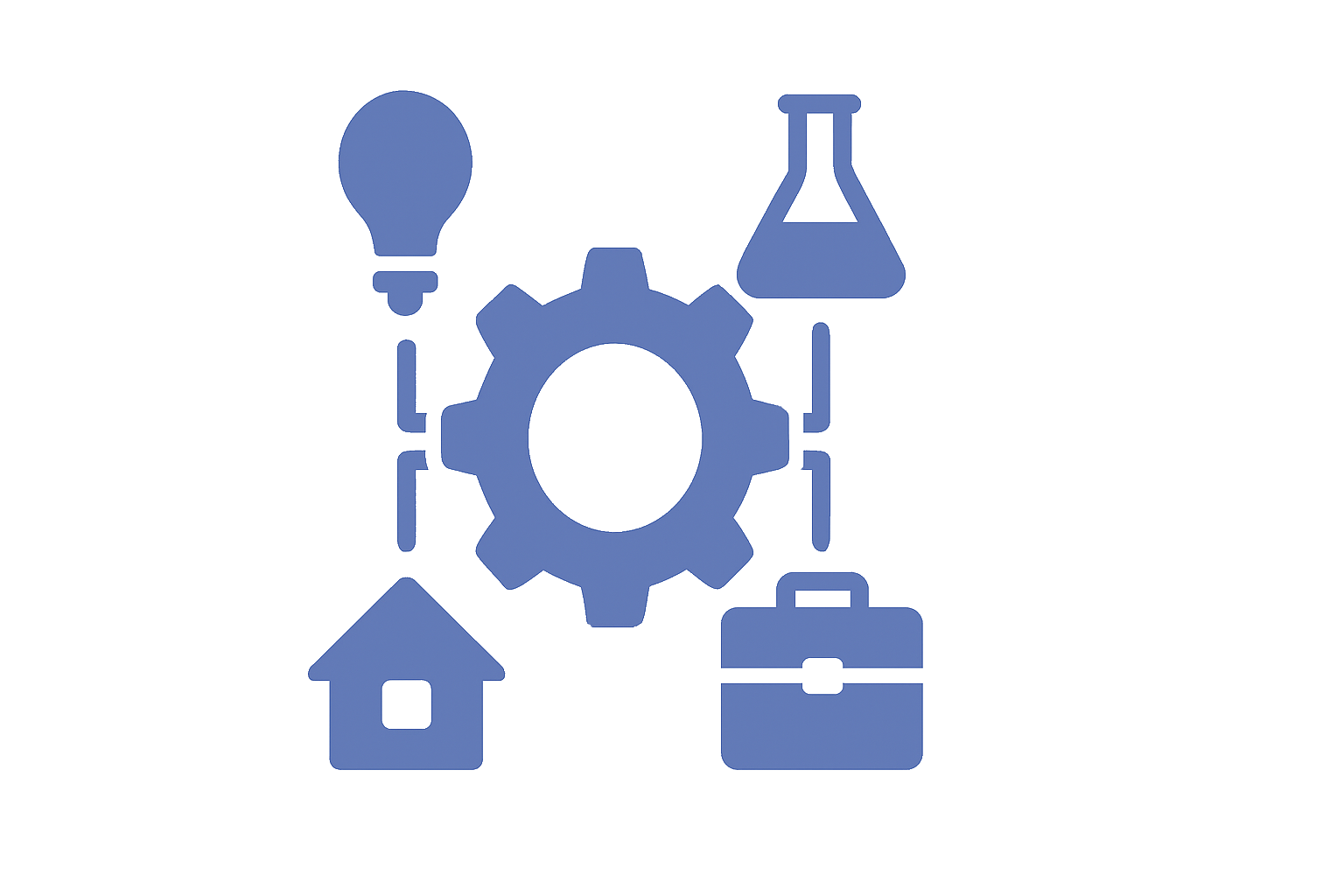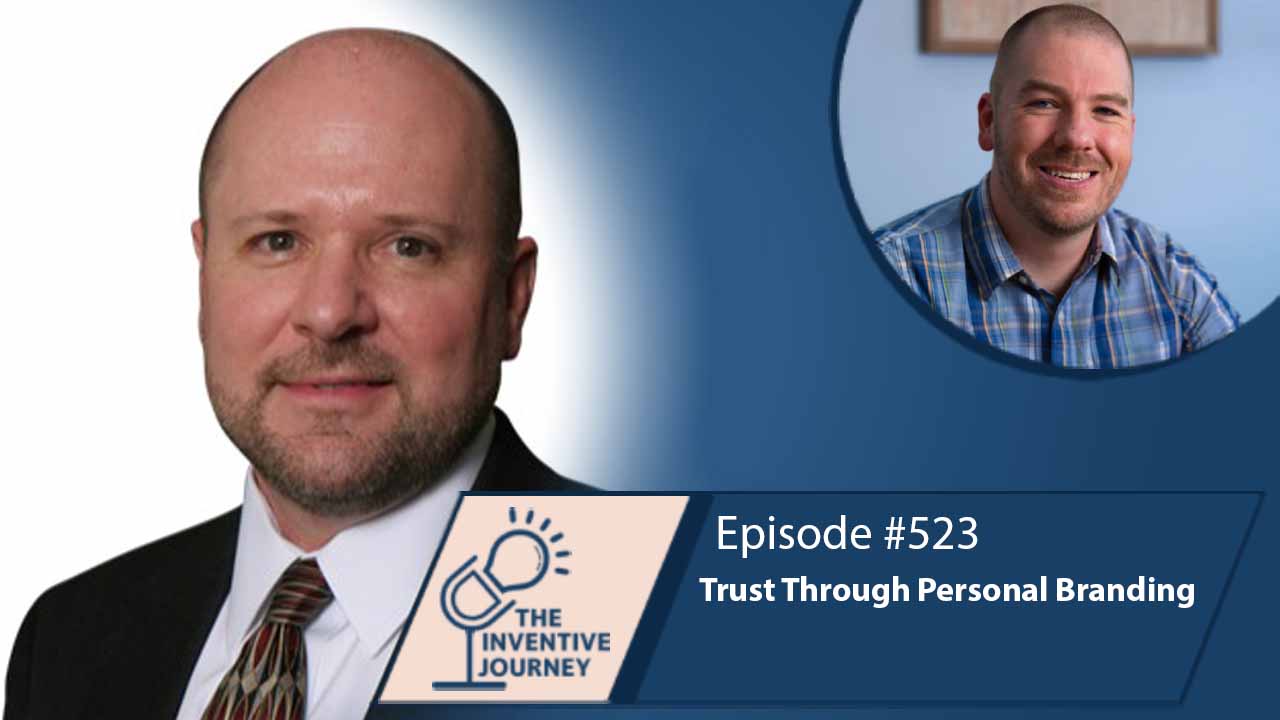Experience | Expertise

Experience | Expertise
The Inventive JourneyEpisode #523Trust Through Personal Brandingw/ Alan See What This Episode Talks About: How To Manage Business & Self In the realm of small businesses and...
The Inventive JourneyEpisode #522Expanding Networks: Embracing Growth Beyond Limitsw/ Randy Molland What This Episode Talks About: How To Manage Business & Self Surrounding myself with networks that...
The Inventive JourneyEpisode #521Embracing Persistence and a Growth Mindsetw/ Karl Swanepoel What This Episode Talks About: How To Manage Business & Self Persistence is the key to...
The Inventive ExpertEpisode #113Rethinking Advertising and SEO: Breaking the Mythw/ Ryan Spelts What This Episode Talks About: How To Manage Business & Self The biggest myth in...
The Inventive JourneyEpisode #520Starting Small: Focus on Your First Clientw/ Nicole Grinnell What This Episode Talks About: How To Manage Business & Self You don't have to...
The Inventive JourneyEpisode #519Discover, Embrace, Succeed: Uniquelyw/ Janis Vavere What This Episode Talks About: How To Manage Business & Self A valuable piece of advice I have...
The Inventive JourneyEpisode #518The Power of Great Mentorsw/ Kathy Schwartz What This Episode Talks About: How To Manage Business & Self Discovering exceptional mentors has been a...
The Inventive ExpertEpisode #112Untangling Financial Advisor Misconceptionsw/ Lawrence Sprung What This Episode Talks About: How To Manage Business & Self The prevailing misconception in our profession is...
The Inventive JourneyEpisode #516Prioritize Selling: The Key to Success in B2Bw/ Omer Glass What This Episode Talks About: How To Manage Business & Self If you are...
The Inventive JourneyEpisode #515Boundaries and Focus: Keys to Small Business Successw/ Michelle Guo What This Episode Talks About: How To Manage Business & Self Don't hesitate to...
The Inventive ExpertEpisode #111Decoding Signing Services: Debunking the Mythw/ Phillip Hogan What This Episode Talks About: How To Manage Business & Self One of the greatest misconceptions...
The Inventive JourneyEpisode #514Unearthing the Power of a Unique Nichew/ Scott Chesson What This Episode Talks About: How To Manage Business & Self People kept emphasizing the...
The Inventive JourneyEpisode #513Starting Small: A Key to Business Successw/ Drea Burbank What This Episode Talks About: How To Manage Business & Self One of the most...
The Inventive JourneyEpisode #512Believe in Your Deservedness: A Path to Successw/ William Deck What This Episode Talks About: How To Manage Business & Self Embrace the belief...
The Inventive ExpertEpisode #110The Reality of Cannabis Industry Financesw/ Laurie Parfitt What This Episode Talks About: How To Manage Business & Self One of the biggest misconceptions,...
The Inventive JourneyEpisode #511Finding Your Unique Voice in Businessw/ Deborah Coviello What This Episode Talks About: How To Manage Business & Self When I started my business,...
The Inventive JourneyEpisode #510Living with Intention: Plan and Executew/ Jason Ciment What This Episode Talks About: How To Manage Business & Self A diver once shared a simple...
The Inventive JourneyEpisode #509Building a Strong Support Network for Successw/ Fred Warder What This Episode Talks About: How To Manage Business & Self Surround yourself with a...
The Inventive ExpertEpisode #109Real Estate Investing: No Money, No Problem!w/ Fong Chua What This Episode Talks About: How To Manage Business & Self One of the biggest...
The Inventive JourneyEpisode #508Seeking Mentors for Growthw/ Courtney Kramer Wilson What This Episode Talks About: How To Manage Business & Self One valuable piece of advice is...
The Inventive FounderEpisode #3Energized by Fatigue: Business Thrivesw/ Slava Podmurnyi What This Episode Talks About: How To Manage Business & Self I must admit, I'm incredibly fatigued,...
The Inventive JourneyEpisode #507Digital Marketing: Unleash Your Company's Growthw/ Preston Hamby What This Episode Talks About: How To Manage Business & Self Embrace the art of marketing and...
The Inventive JourneyEpisode #506Unleashing Innovation in Traditional Industriesw/ William Huber What This Episode Talks About: How To Manage Business & Self Do not wait for the perfect...
The Inventive ExpertEpisode #108Authenticity: Inbrand Strategy Demystifiedw/ Stacy Thal What This Episode Talks About: How To Manage Business & Self The biggest misconception is the belief that...
The Inventive JourneyEpisode #505Unseen Gaps: Navigating Knowledge and Privilegew/ Ryan Bostick What This Episode Talks About: How To Manage Business & Self Read a book titled "Unseen...
The Inventive JourneyEpisode #517Know Your Numbers : Keys to Industry Successw/ Gary Plassmeyer What This Episode Talks About: How To Manage Business & Self To succeed in your...
The Inventive JourneyEpisode #504Checking Assumptions: The Key to Successw/ Lauren Schuivens What This Episode Talks About: How To Manage Business & Self The main lesson I've learned...
The Inventive JourneyEpisode #503Enhancing Analytical Abilities in Investmentsw/ Timothy Poore What This Episode Talks About: How To Manage Business & Self It is crucial for you to...
The Inventive ExpertEpisode #107Simplified Skincare for Radiant Skinw/ Genevieve Dolan What This Episode Talks About: How To Manage Business & Self I believe the beauty industry perpetuates...
First, Get Customers Nate Peo Devin Miller The Inventive Journey Podcast for Entrepreneurs 10/10/2020 Or listen using the plugin below: First, Get Customers Get customers...
































